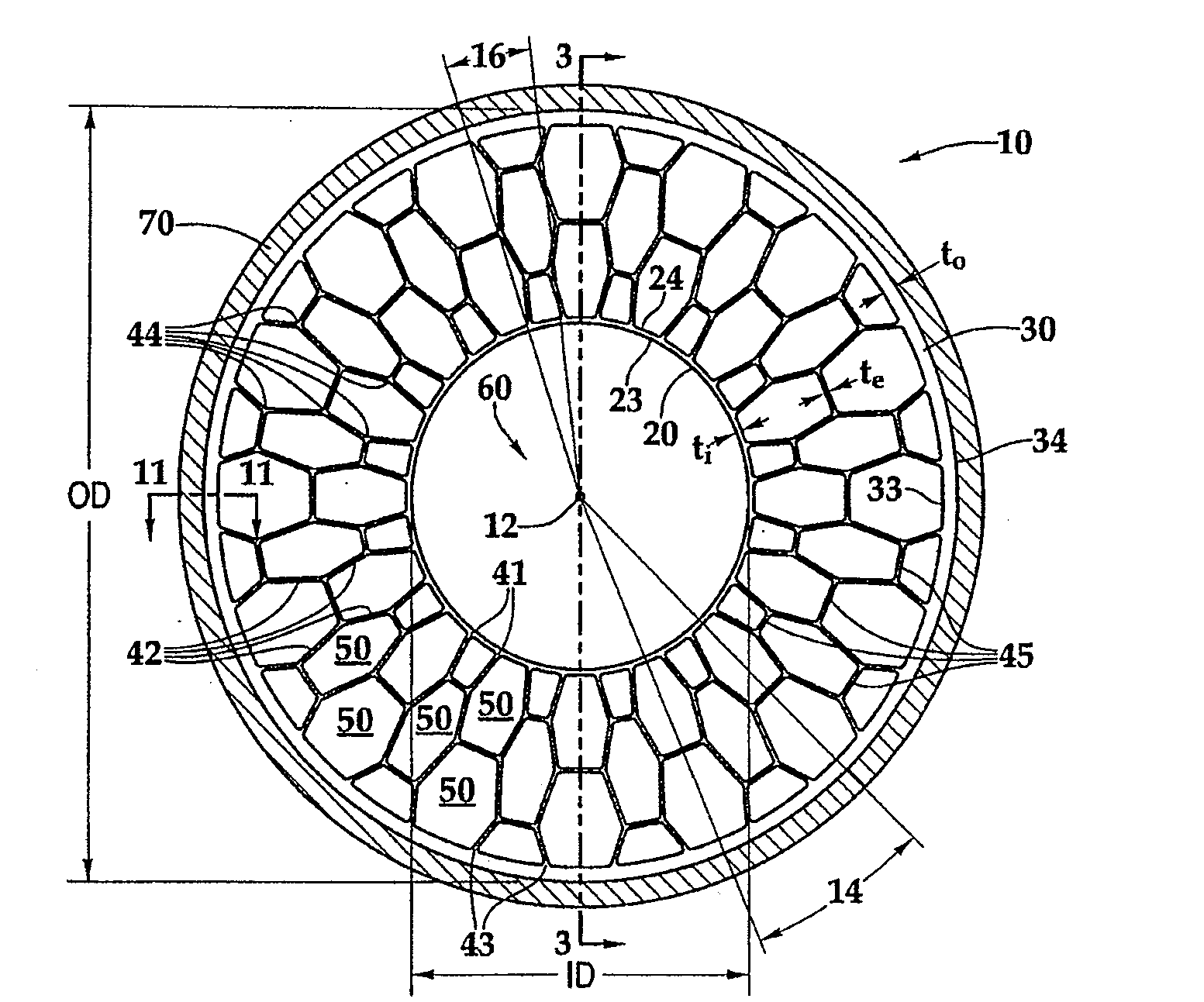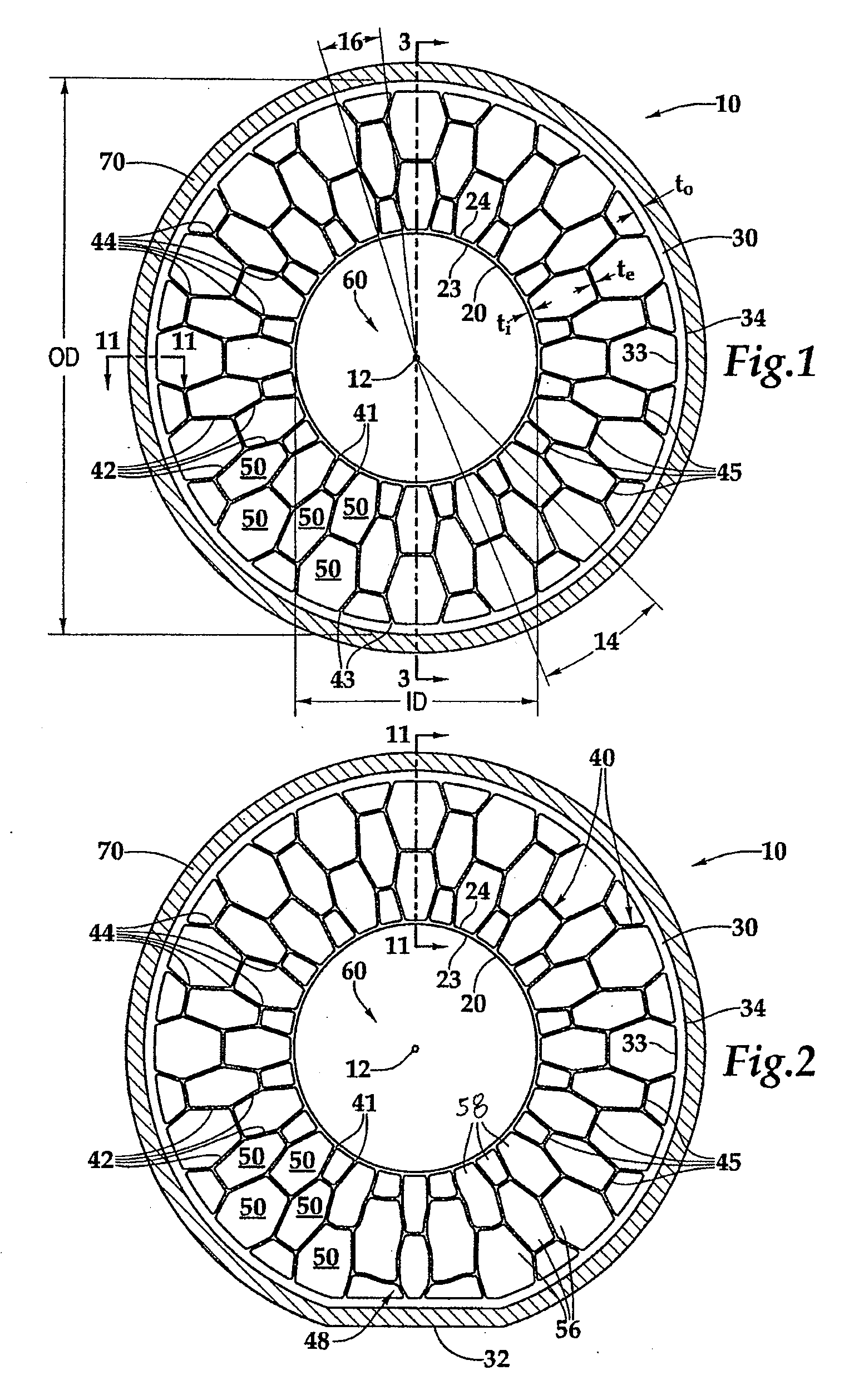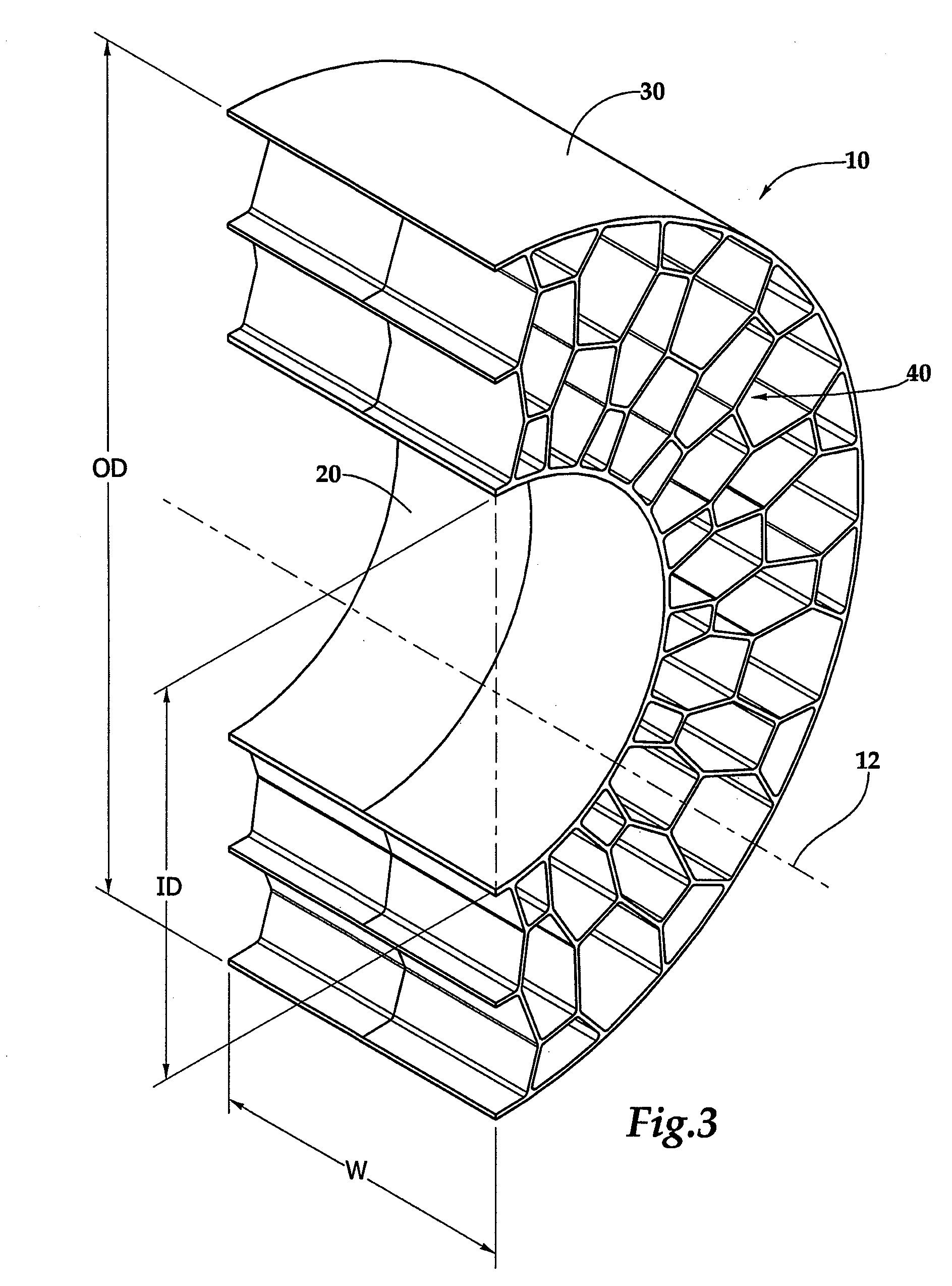Tension-based non-pneumatic tire
a non-pneumatic tire and tire technology, applied in the field of tires, can solve the problems of pneumatic tires still possessing drawbacks, affecting the stability of the vehicle, and passengers' riding is rather uncomfortable, so as to improve the stability and reduce the stiffness. , the effect of increasing the stiffness
- Summary
- Abstract
- Description
- Claims
- Application Information
AI Technical Summary
Benefits of technology
Problems solved by technology
Method used
Image
Examples
example
[0113]In one non-limiting example embodiment, a non-pneumatic tire 10 possesses the interconnected web 40 of the configuration shown in FIGS. 1 and 2. Tire 10 has a radius of about 9.5 inches and wheel 60 has a radius of about 4⅜ inches.
[0114]In general, the force required for buckling of a column is governed by the equation: F_buckling=(KEIπ̂2) / 1̂2 where K=a constant whose value depends on how the ends of the column are affixed, E=tensile modulus, I=the area moment of inertia, and 1=the unsupported length of the column.
[0115]If each web element 42 of interconnected web 40 is modeled as its own thin column, the radially innermost elements will be fixed at one end and free to move laterally at another end. In this example, K=¼
[0116]In this example, the interconnected web 40 and the generally annular outer ring 30 are made of a similar material having a tensile modulus, E, of about 21 MPa or 3050 psi.
[0117]Tire 10 can be about 8 inches wide. As noted above, in preferred embodiments, e...
PUM
 Login to View More
Login to View More Abstract
Description
Claims
Application Information
 Login to View More
Login to View More - R&D
- Intellectual Property
- Life Sciences
- Materials
- Tech Scout
- Unparalleled Data Quality
- Higher Quality Content
- 60% Fewer Hallucinations
Browse by: Latest US Patents, China's latest patents, Technical Efficacy Thesaurus, Application Domain, Technology Topic, Popular Technical Reports.
© 2025 PatSnap. All rights reserved.Legal|Privacy policy|Modern Slavery Act Transparency Statement|Sitemap|About US| Contact US: help@patsnap.com



